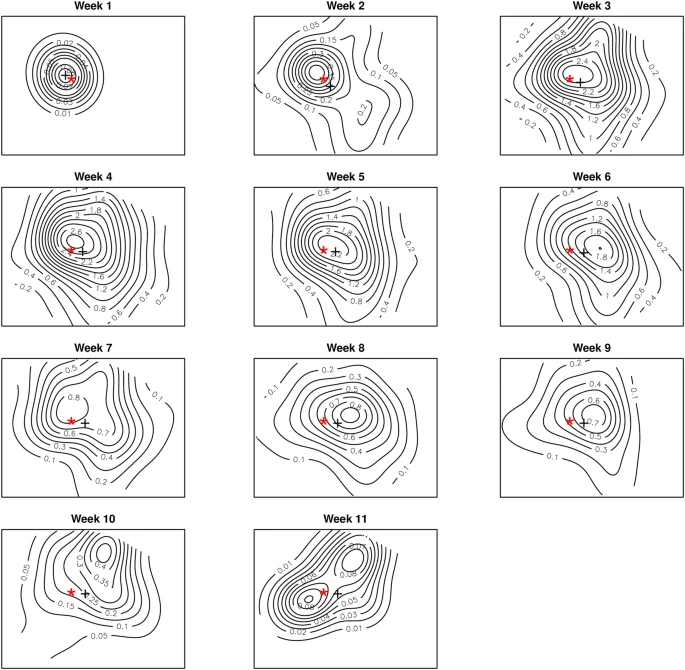TEMPORAL TREND AND SPATIAL CLUSTERING OF CHOLERA EPIDEMIC IN KUMASI-GHANA
Osei, F.B., Stein, A. Temporal trend and spatial clustering of cholera epidemic in Kumasi-Ghana. Sci Rep 8, 17848 (2018). https://doi.org/10.1038/s41598-018-36029-4
Abstract
Knowledge of the temporal trends and spatial patterns will have significant implications for effective preparedness in future epidemics. Our objective was to investigate the temporal trends and the nature of the spatial interaction of cholera incidences, dwelling on an outbreak in the Kumasi Metropolis, Ghana. We developed generalized nonparametric and segmented regression models to describe the epidemic curve. We used the pair correlation function to describe the nature of spatial clustering parameters such as the maximum scale of interaction and the scale of maximal interaction. The epidemic rose suddenly to a peak with 40% daily increments of incidences. The decay, however, was slower with 5% daily reductions. Spatial interaction occurred within 1 km radius. Maximal interaction occurred within 0.3 km, suggesting a household level of interactions. Significant clustering during the first week suggests secondary transmissions sparked the outbreak. The nonparametric and segmented regression models, together with the pair correlation function, contribute to understanding the transmission dynamics. The issue of underreporting remains a challenge we seek to address in future. These findings, however, will have innovative implications for developing preventive measures during future epidemics.




